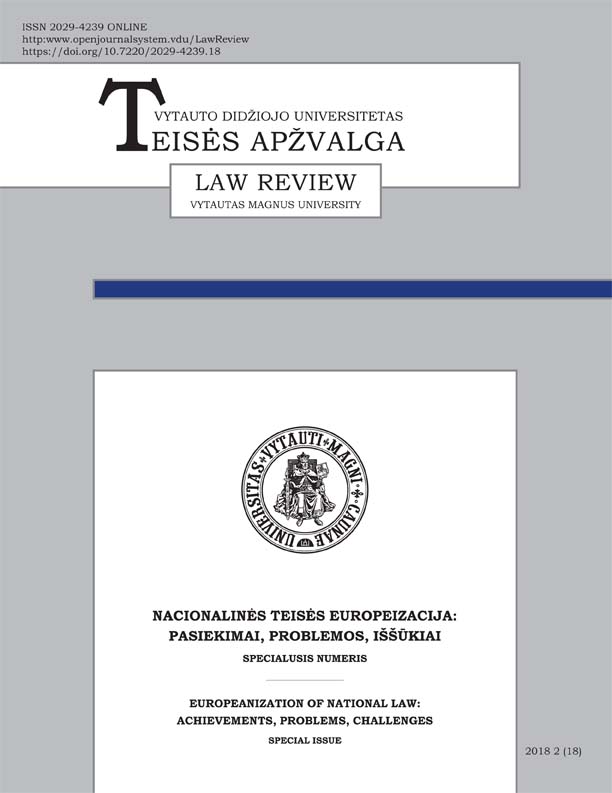Asmens sveikatos priežiūros paslaugų prieinamumo reglamentavimo tendencijos Europos Sąjungoje ir Lietuvoje
Regulation Tendencies of Access to Individual Health Care in the European Union and Lithuanian Law
Author(s): Kristina AstromskėSubject(s): Law, Constitution, Jurisprudence, Health and medicine and law
Published by: Vytauto Didžiojo Universitetas
Keywords: Access to healthcare services; Patient mobility; Patient rights; Cross-border healthcare; EU health policy;
Summary/Abstract: The article provides systematic analysis of EU legislation, laws and other legal acts of the Republic of Lithuania, also political documents, jurisprudence and scientific literature related to the content and legal concept of access to healthcare services and its definition. Analysis shows, that EU Member States have the obligation to apply legal and organizational measures to ensure the rights of patients to access both urgent and planned healthcare services in the state of insurance and in other EU Member States, one of such measures can be considered implementation of the Directive 2011/24/EU of the European Parliament and of the Council of 9 March 2011 on the application of patients’ rights in cross-border healthcare, provisions of which, coordinated with the EU social security legislation, require to establish clear conditions for the provision of healthcare services. Implementation of that requirement would enable patients to make reasonable choices of the most appropriate healthcare provider, and increase patients' access to the healthcare needed without delay. Authors argue, that, in order to implement the EU law in the field of healthcare services provision it is necessary to define in detail the legal the concept of the access to healthcare services, also to establish and enforce accessibility criteria. The concept of access to health care is difficult to define unambiguously because of it‘s interdisciplinarity, but nevertheless, EU Member States should not only clearly define the healthcare services accessibility standards, but also provide procedures and tools that help all patients, both domestic and coming another EU Member State, to exercise and defend their rights. The analysis of the development of legislation in Lithuania shows tendency to adjust the definitions both of the concepts of quality and accessibility of health care services. Legislation, establishing more detailed requirements at the state level, enabling greater universality, coordination and control of health care provision criteria is being prepared and enforced. The assumptions for adopting new legislation cannot be directly related to the availability of cross-border health care services, but they are undoubtedly influenced by the increasing coordination of the Lithuanian health system with the EU health policy and the aim of ensuring internationally recognized healthcare provision standards.
Journal: Teisės apžvalga
- Issue Year: 2018
- Issue No: 2 (18)
- Page Range: 98-113
- Page Count: 16
- Language: Lithuanian

